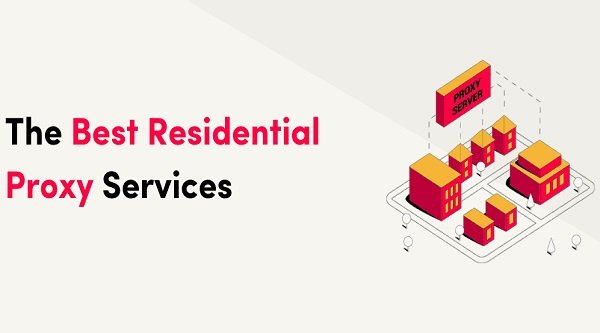Everything You Need to Know about Residential Proxy Servers and Their Benefits
Residential Proxy Servers

What is a Residential Proxy Server and How Does It Work?
A residential proxy server is a type of proxy server that provides access to the internet through an IP address assigned to a physical location. This type of proxy is different from datacenter proxies, which use IP addresses from data centers. Residential proxies are more reliable and secure than datacenter proxies, as they provide better anonymity and privacy for users. Residential rotating proxies are also available, which rotate the IP address used by the user each time they make a request to ensure maximum security and privacy. Residential proxies can be used for many different purposes, such as website scraping, online marketing research, and more.
The Advantages of Using a Residential Proxy Server for Businesses & Individuals
Residential proxy servers are becoming increasingly popular for businesses and individuals who want to access the internet securely and anonymously. With a residential proxy server, businesses can protect their data from cyberattacks, and individuals can browse the web with greater privacy protection. Private proxy servers provide a secure private network for users to access the internet without risk of being tracked or monitored. Additionally, anonymous browsing with a VPN server helps protect users’ privacy by encrypting their data and hiding their IP address. With these advantages, a residential proxy server is an ideal solution for businesses and individuals who need secure and private access to the internet.
How to Choose the Right Residential Proxy Server Provider?
Choosing the right residential proxy server provider is essential for businesses that need reliable and secure access to their data. A residential proxy server provides a pool of IP addresses that can be used to mask the identity of the user and protect their data from being accessed by unauthorized sources. By choosing a reliable and secure provider, businesses can ensure that they are getting the best possible service for their money.
When selecting a residential proxy server provider, it is important to consider factors such as pricing, speed, reliability, scalability, customer support, and security features. It is also important to look at what kind of pool of IP addresses they offer – static or rotating – as well as any additional features such as geo-targeting or whitelisting/blacklisting capabilities. By taking all these factors into account, businesses can find the best residential proxy server provider for their needs.
What Are the Different Types of Residential Proxies Available?
Residential proxies are a type of internet protocol (IP) address that is assigned to an individual or a business. They are different from traditional IP addresses because they are assigned to real physical devices, such as computers, routers, and other network devices. Residential proxies can be used for a variety of tasks, such as web scraping and online anonymity.
There are three main types of residential proxies available: static IP address pool (such type is available at proxy-seller website, for example), dedicated static IP address pool, and dynamic rotating IP address pool. Static IP address pools provide users with the same fixed IP address each time they access the internet. Dedicated static IP address pools offer dedicated static IP addresses that can be used across multiple devices or locations. Finally, dynamic rotating IP address pools provide users with random rotating IP addresses each time they access the internet. Each type of residential proxy has its own set of advantages and disadvantages depending on the user’s needs.
Understanding the Cost & Pricing Models of Various Residential Proxy Services
Residential proxies are an important tool for businesses and individuals who need to access the internet securely and anonymously. However, understanding the cost and pricing models of different residential proxy services can be difficult. In this article, we will discuss the different types of residential proxies available, their cost, and pricing models so that you can make an informed decision when selecting a service provider.
We will also discuss the advantages and disadvantages of shared proxies compared to dedicated ones. By the end of this article, you should have a better understanding of what is involved in selecting a residential proxy service that meets your needs.





